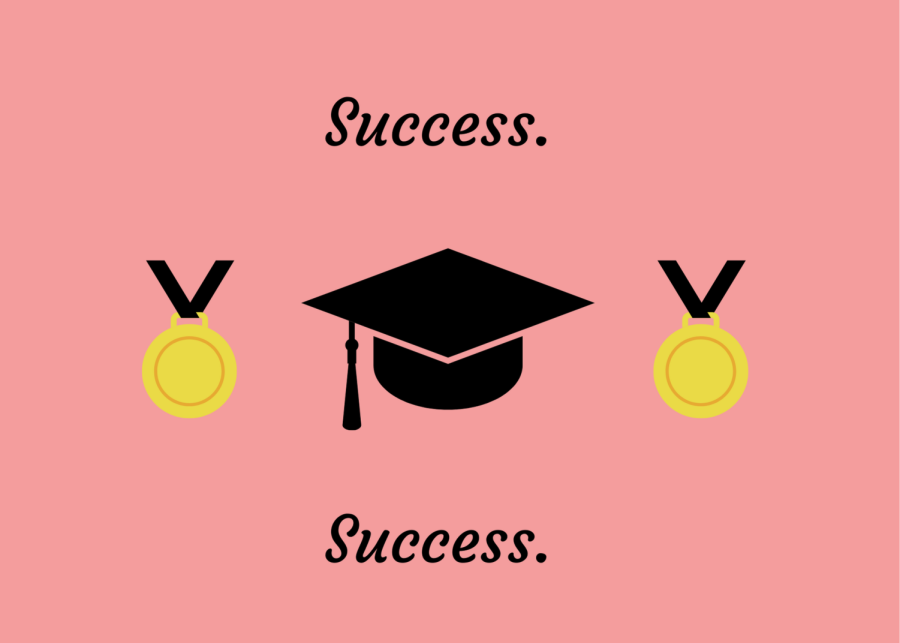The lengths that students will go for success
Many students strive for excellence in high school through club and talking hard classes. This is only one of the definitions of success.
In high school it is believed that education is the key to success. Excelling in education is often thought of as one having an above average GPA, exceptional ACT or SAT score, and the perfect array of extracurriculars to polish off the application for colleges. Many students strive for these things because it determines where a student will end up after high school and the scholarship money they receive.
There is a great deal of pressure to become a well rounded applicant for colleges to pick. In high schools all across America, students spend time and money through Advanced Placement classes (AP), service hours to get into National Honor Society, and being the President or VP of clubs that they honestly have no interest in being in or part of. Wilsonville High school teacher Kate Hanlon explained that, ”it’s like checking off boxes.” She explores this idea further by saying that students do the things necessary to gain this success not purely because they enjoy volunteering or because they truly love the classes they take to raise their gpa. “It’s just something that is expected of them to “’be successful.’”
Where is the enjoyment in pushing themselves to the extremes, only doing what they have to? Students don’t do this because they enjoy it but because this is what success is defined as. Checking off boxes and going through the list to be successful doesn’t equate to the idea that one is educated.
Education is learning. Students each day spend their time listening to lectures, solving equations and doing reading assignments. This is to help them dive deeper into the subjects being taught to them. But as students increase their class loads to harder classes and nightly homework assignments build up, students spend hours racing against time to both complete their homework, participate in extracurricular activities and be well rested to repeat it all over again the next day. Doing more doesn’t necessarily equal to being more.
What about the students who are artists? That enjoy their art classes and rather take those then load up on hard courses that they don’t enjoy. They may not be that well rounded applicant with straight A’s in the core curriculum, but they have passion and talent. Their learning will go much deeper because they take the time and effort into something they truly enjoy.
Students need to be educated but are they really truly learning? Success isn’t defined by the fulfillment of requirements but the true passion and love of learning about something students truly enjoy. The question that arises is where is their reward? The reward for passionate people who aren’t perfect applicants but are hardworking. Despite the fact that they may receive the scholarships or get into highly competitive colleges, they have a greater reward of finding happiness in what they enjoy. This reward will be part of them through a lifetime.











